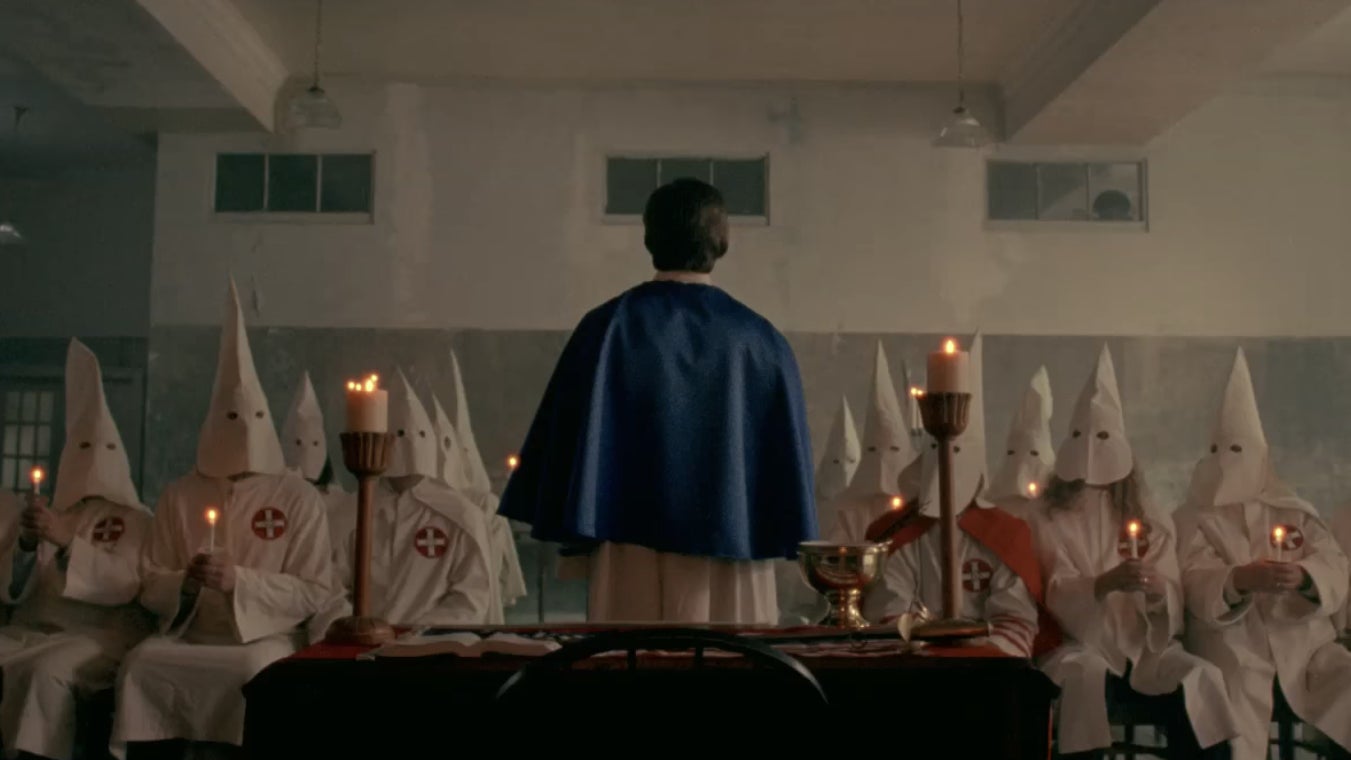Spike Lee’s “BlacKkKlansman” shows white supremacism in all its buffoonery and menace
Spike Lee’s newest joint, BlacKkKlansman, opens with a scene from another film: Gone with the Wind, the part when Vivien Leigh’s character, Scarlett O’Hara, surveys the massive Confederate casualties following the Battle of Atlanta—a resounding victory for the Union that presaged the surrender of the slave-holding South less than a year later.


Spike Lee’s newest joint, BlacKkKlansman, opens with a scene from another film: Gone with the Wind, the part when Vivien Leigh’s character, Scarlett O’Hara, surveys the massive Confederate casualties following the Battle of Atlanta—a resounding victory for the Union that presaged the surrender of the slave-holding South less than a year later.
It’s a hilarious barb to open the film with—a parameter-setting visual gag that undermines the argument of white power before it even begins. You fought a war 150 years ago and lost, Lee’s saying. Get over it. Everything that comes next makes the Confederate fanboys decades later seem like genuine losers.
The opening also comes off as something of a dig at Gone with the Wind itself, whose reputation as one of the great films of all time took a hit in the second half of the 20th century when modern film critics and historians pointed out that, actually, it’s pretty racist and nostalgic about the “Lost Cause” of the American Civil War—a historical justification for perpetuating white supremacism.
Spike Lee is at the controls now. He’s writing the narrative. In BlacKkKlansman, he tells the unbelievable true story of Ron Stallworth (played by John David Washington), a black police detective, who, with the help of a white colleague, infiltrated the Colorado Springs, Colorado chapter of the Ku Klux Klan in 1979. Stallworth gains the trust of the Klansmen by talking to them over the phone, and when it comes time to meet with them in the flesh, he sends Flip Zimmerman (Adam Driver) in his place. Together, as one “Ron Stallworth,” the pair work their way into this confederacy of dunces, and are eventually nominated to take over leadership of the chapter.
Lee, one of our most essential filmmakers, has an extensive body of work addressing race and racism in America, from 1989’s Do The Right Thing to the 2006 documentary When the Levees Broke: A Requiem in Four Acts. BlacKkKlansman provides a comprehensive takedown of both the history of white supremacy in the country and the specious thinking that allows it to still thrive in 2018. Through Ron’s and Flip’s interactions with these pathetic white men, Lee suggests their hatred comes not from white pride, but from a deep-seated insecurity about themselves—an inadequacy they try to banish by yelling about the supremacy of the white race, dressing up in halloween costumes, and burning inanimate objects.
But, crucially, Lee’s film also demonstrates how easily these ineffectual cosplayers are turned dangerous by the combination of violent rhetoric and access to weapons. There’s no shortage of either—then, in 1979 Colorado, or today, at a rally in Charlottesville, or a church in South Carolina.
BlacKkKlansman is an unsubtle, but still powerful, mockery of a type of white guy (and it’s almost always a white guy) who thinks wearing a badge entitles him to terrorize people who look different; the kind of guy who hides his face under a hood and chants obscenities but whimpers the second he’s confronted; the kind of guy who’s deeply, pathologically responsive to the racist base of voters that elected him.
At one point, Stallworth calls Klan headquarters to inquire about his membership card, and is shocked when KKK Grand Wizard himself, David Duke (still around today and a Donald Trump supporter), picks up the phone. The film depicts Duke as a more sartorially refined, articulate face of the Klan. He’s able to speak coherently about the supremacy of the white race (grammatically, that is—not logically), but he doesn’t even realize he’s saying all these things to a black undercover police detective on the other line.
Duke (played by Topher Grace) is too obsessed with his own bad ideas, and whether or not he’s communicating them effectively to a stranger, to grasp that he’s the butt end of one big joke. In fact, he’s so sure of himself and his understanding of what makes white and black people so different that he tells Stallworth he can always tell when he’s talking to a black man because they speak a certain way, pronounce the letter “R” with a special inflection he can spot a mile away. (This actually happened, according to the real Stallworth.)
If BlacKkKlansman is a comedy, its climax represents a stark tonal shift into righteous didacticism, one that’s totally earned. Lee connects the Confederacy of the 1860s to the KKK of the 1970s to the alt-right neo-Nazis of the present moment. Stallworth’s operation is just one small victory in an ongoing struggle, and Lee makes sure we leave the theater knowing that struggle is far from over.
Released on the one-year anniversary of the “Unite the Right” rally in Charlottesville, Virginia, BlacKkKlansman concludes with footage from that horrible day, a stark reminder that the type of white supremacists Ron Stallworth was able to bamboozle still endure. They’re right there, listlessly marching with dollar-store tiki torches, and ramming a car into a crowd of peaceful counter-protestors, killing a woman.